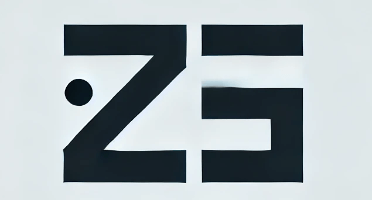
Lio Mou
Project OwnerIn the project, he is the project lead and DDI specialist, leveraging his research on privacy-preserving data analysis platforms to ensure robust identity integration and system security.

This proposal outlines the ZEUS (ZEro knowledge proof enabled Unified decentralized digital Identity hub System), a research project to create a comprehensive blueprint for a Decentralized Digital Identity (DDI) Hub within the SingularityNET ecosystem. Our approach aims to unify multiple DDI solutions, such as Gitcoin Passport, Privado, Identus, and WaLT, under a single framework while safeguarding users’ privacy and ensuring unique, verifiable identities.
The goal of this project is to conduct research on solutions and requirements for a decentralized digital identity (DDI) hub tailored to the needs of the SingularityNET ecosystem and its reputation system. This will include research into how existing DDI solutions can be integrated into a single hub that will allow for the creation of reputation scores that can be tied to unique verifiable identities while maintaining privacy. Part of the RFP is the definition of 2 or 3 RFPs for development of the envisioned system. This RFP is closely connected to the Reputation Platform RFP, and should be guiding the data privacy and identity integration solution of that RFP.

In order to protect this proposal from being copied, all details are hidden until the end of the submission period. Please come back later to see all details.
In Month 1 the team will finalize the project scope and establish clear success criteria in collaboration with SingularityNET stakeholders. This phase involves an in-depth comparative analysis of existing Decentralized Digital Identity (DDI) solutions (e.g. Gitcoin Passport Privado Identus) and an evaluation of the current WaLT framework. The team will also research Zero-Knowledge Proof (ZKP)-based KYC providers and biometric/behavioral verification methods. The objective is to define technical requirements integration points and identify potential challenges in adopting privacy-preserving protocols.
Detailed Requirements & Feasibility Report: Documenting the functional technical and security requirements. Comparative Analysis & Technology Review: A comprehensive study comparing existing DDI solutions outlining integration opportunities for WaLT enhancements and ZKP-based methods.
$40,000 USD
Stakeholder approval of the requirements document and feasibility study. A validated technology review that clearly identifies the most suitable solutions and highlights potential risks and mitigations.
In Month 2 the team will design the layered architecture for the ZEUS DDI Hub. This includes creating data flow diagrams defining core components (data ingestion core identity privacy & security and API integration layers) and establishing a technical framework for extending WaLT to support sub-ID generation. Concurrently a prototype will be developed to demonstrate ZKP integration for privacy-preserving identity verification and anti-sybil measures.
Architecture Diagrams & Technical Specifications: Detailed schematics and documents that define the system architecture integration points and data lifecycle management protocols. Prototype Demonstration: A working prototype showcasing the enhanced WaLT features sub-ID generation and ZKP-based verification processes. API Documentation: Draft specifications for REST/GraphQL endpoints to facilitate seamless communication with external ecosystem components.
$40,000 USD
Prototype meets predefined performance, security, and interoperability benchmarks. Positive review and approval of the architecture diagrams and API documentation by key stakeholders. Demonstrable feasibility of integrating ZKP with the WaLT extension in controlled testing.
In Month 3 the focus shifts to integrating the prototype with select external DDI providers and internal SingularityNET components (such as the Reputation Platform and Voting Portal). The team will conduct controlled testing validate security measures and refine the integration protocols. Feedback from stakeholder reviews will be incorporated to finalize all technical documentation. This phase also includes the development of 2-3 comprehensive RFP documents for the next stage of development.
Final Research & Validation Report: A detailed document summarizing the integration process testing outcomes security assessments and validation of system performance. Completed RFP Documents: 2-3 RFPs that outline the next steps for full-scale development including technical architecture extended WaLT functionalities and Reputation Platform integration. Final Reference Architecture & Implementation Roadmap: High-level and detailed schematics along with a roadmap for moving from prototype to production deployment.
$40,000 USD
All integration tests meet or exceed predefined performance and security metrics. Stakeholders confirm that the final documentation and RFPs provide a clear, actionable roadmap for the next development phase. Comprehensive validation feedback is documented, and any identified issues are resolved to the satisfaction of the project sponsors.
Reviews & Ratings
Please create account or login to write a review and rate.
Check back later by refreshing the page.
© 2024 Deep Funding

Join the Discussion (0)
Please create account or login to post comments.